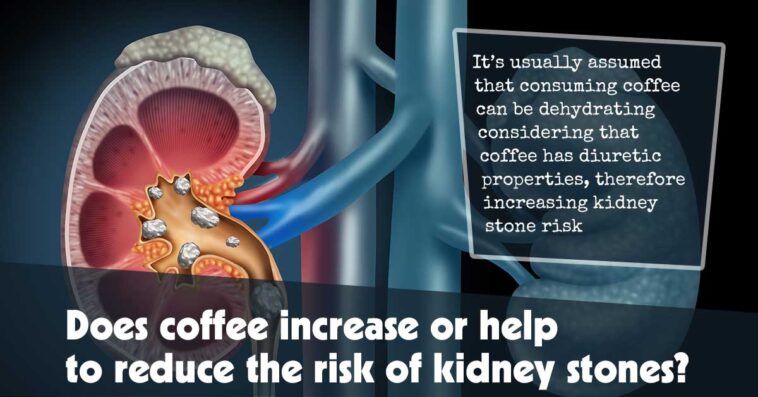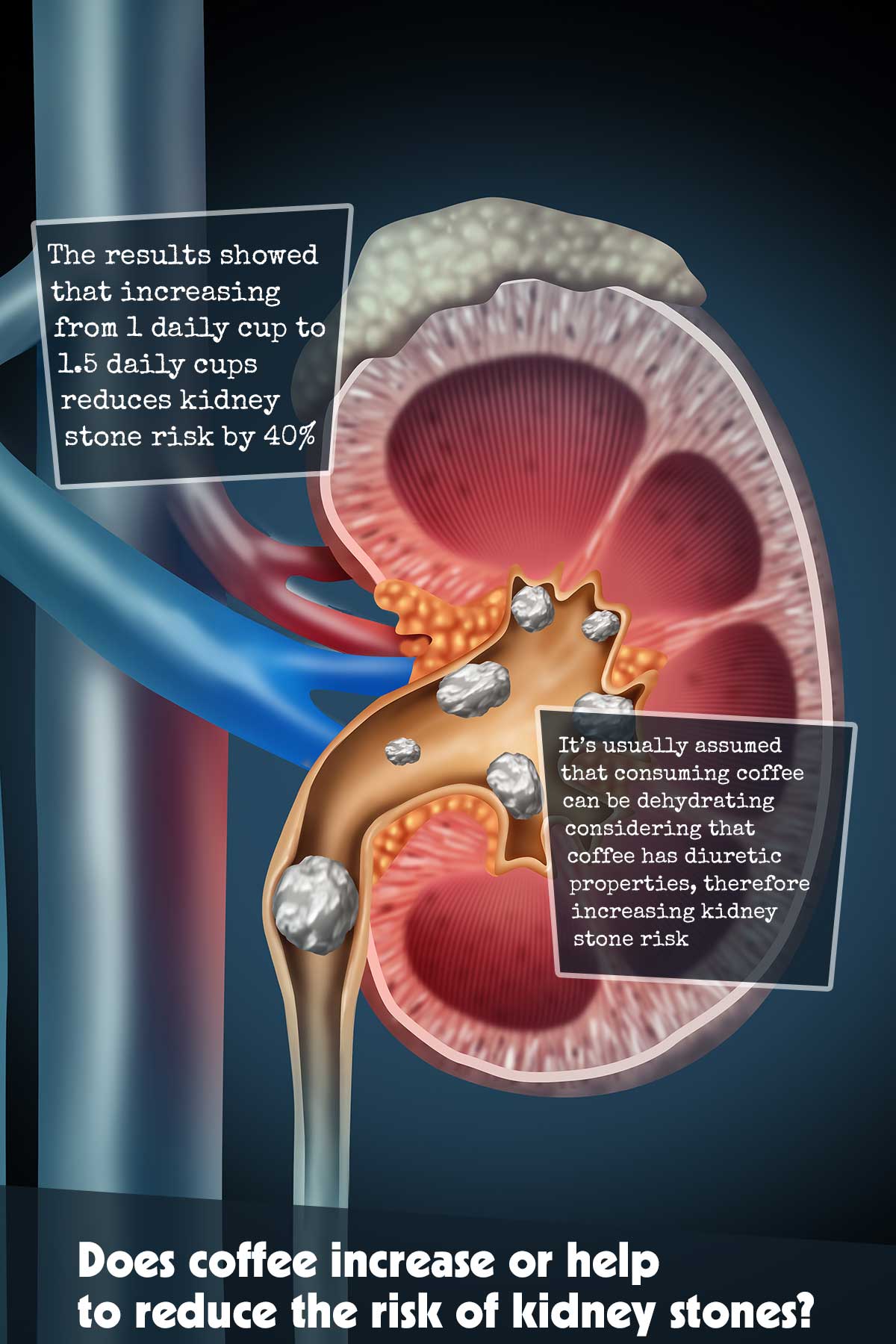It’s usually assumed that consuming coffee can be dehydrating considering that coffee has diuretic properties, therefore increasing kidney stone risk. Studies have however suggested the opposite.
Kidney stones are an increasingly common issue with recent estimates suggesting prevalence as high as 15% of the general population. More than 500,000 individuals visit emergency rooms with kidney stone issues each year.
Kidney stones form as a hard object from chemicals found in the urine. The stone can remain in the kidney after formation or travel into the urethra via the urinary tract. Stones that don’t move can result in urine backing up, which causes pain.
An inverse connection between consumption of coffee and kidney stone incidence has been consistently found in some research.
In one study researchers applied the Mendelian randomization technique to assess the potential causal connection between consumption of coffee and kidney stone development.1✅ JOURNAL REFERENCE
DOI: 10.1053/j.ajkd.2021.04.018
Data were used from 571,657 participants who had kidney stones from 2 studies, which included 176,613 FinnGen study participants and 395,044 U.K. Biobank study participants.
The study looked at how genetics influence the coffee and kidney stone association. The study design took advantage of genetic variants linked to higher coffee consumption. The results showed that increasing from 1 daily cup to 1.5 daily cups reduces kidney stone risk by 40%.
Available data were made use of and 12 single-nucleotide polymorphisms, or SNPs, were selected from genome-wide association studies that were linked to coffee intake. Coffee intake was determined via food frequency questionnaires.
Making use of the inverse-variance weighted method, coffee consumption causal estimates were computed: a 40% reduced likelihood of stones was found for a 50% increase in consumption, corresponding to a 1 to 1.5 daily cup increase.
The study data together with the observational data should negate the mistaken belief that coffee dehydrates and is a beverage that individuals with a high risk of kidney stones should avoid. This study provides causal evidence that kidney stone risk is reduced with coffee consumption.
The researchers offer several theories for why coffee can help reduce kidney stone occurrence, explaining that urine flow is increased with caffeine intake, representing an important protective factor against kidney stone development. It’s important to mention that this consumption of caffeine should be accompanied by sufficient intake of water.
The adhesion of calcium oxalate crystal to kidney cells can also be reduced by caffeine, and the coffee plant is full of citric acid, and urinary citrate inhibits the formation of kidney stones.




